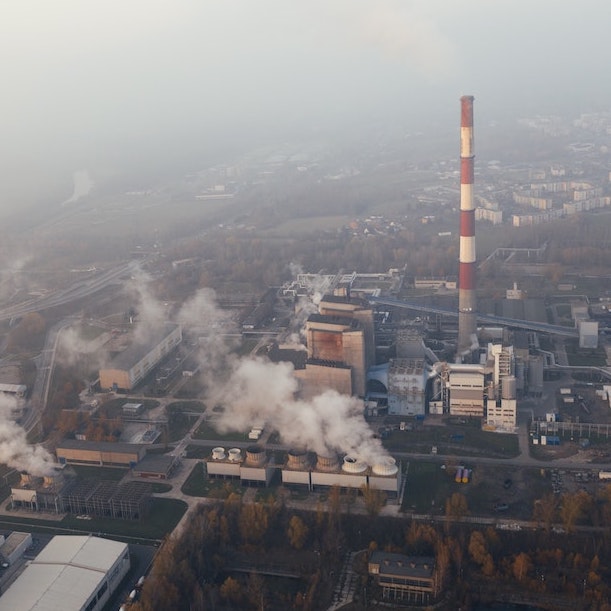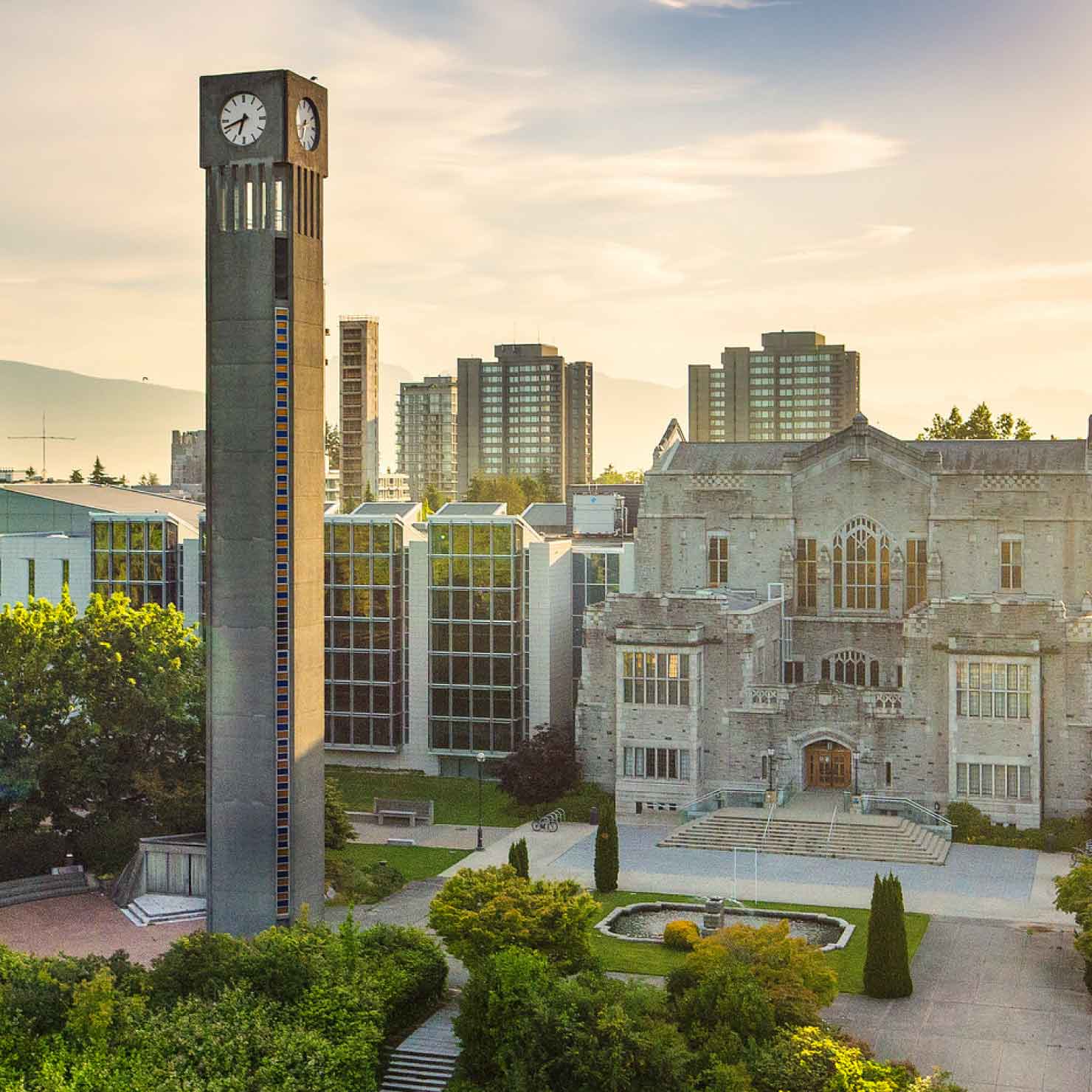UBC understands that the actions we take today, will affect human and environmental wellbeing for generations to come.
The news and events below provide a window into the broad range of climate emergency-related activities underway by UBC academic units, operational departments, community initiatives, and student groups.
UBC invites you to explore what’s happening, and join us in this vital work.
UBC announced as one of the eight higher education institutions to be awarded funding from Acceleration Fund
Jun 29, 2021
Second Nature - a Boston-based NGO focused on accelerating climate action in, and through, higher education - has announced UBC as one of the eight higher education institutions have been awarded grant funding through the Acceleration Fund for innovative climate projects.
As part of the University of British Columbia’s Climate Emergency response, the university is developing a cross-sector Community Council forum where they will work with external partners to further justice-based climate action, equitable development and resilient communities. The funding will be used to hire a UBC student to help plan the Community Council and engagement processes.
Climate activists Naomi Klein and Avi Lewis join UBC
Jun 23, 2021
World-renowned climate activists and journalists Naomi Klein and Avi Lewis are joining the faculty at the University of British Columbia’s department of geography.
Klein is a New York Times best-selling author known across the globe for her work in climate justice and critiques of globalized capitalism. She has written eight critically-acclaimed books, published in more than 30 languages, including The Shock Doctrine, On Fire, No is Not Enough and This Changes Everything. She will join UBC as the inaugural Faculty of Arts Chair in Climate Justice in September.
Canadian documentary filmmaker, Lewis, will join the university in July as a part-time faculty member, and will teach courses focusing on social and political change, communication and documentary filmmaking.
New global air pollution and health impact study the most comprehensive ever
Jun 15, 2021
An international research team led by the University of British Columbia’s Dr. Michael Brauer and Washington University in St. Louis’ Dr. Randall Martin has published the most detailed analysis ever conducted on global air pollution sources and their health impacts.
They have estimated the contribution of major sources of air pollution for 204 countries and territories, making the data publicly available on an interactive website.
This large dataset is the first to estimate global contributions from more than 20 individual pollution sources—from sectors such as agriculture, transportation, energy generation, waste, and residential energy use. It is also the first to study the global impacts of specific fuels like solid biomass, coal, oil and natural gas.
New tool supports student access to climate change courses
Jun 10, 2021
The UBC Sustainability Initiative has launched a curated selection of climate change-related courses available to UBC undergraduate and graduate students at the Vancouver campus.
The tool curates and promotes courses with climate change-related content to students from diverse faculties. Students can browse courses by restrictions (including no- to low-restriction), categories (including climate justice and social science, climate science, and climate change mitigation and adaptation), or by year of study.
UBC launches ‘Vienna House’ – first off-campus living lab research focused on climate, affordability and social equity
May 28, 2021
A proposed six-storey building with approximately 100 units at the intersection of Victoria Drive and Stainsbury Avenue in East Vancouver. The project is a partnership between BC Housing, the City of Vancouver (through the Vancouver Affordable Housing Agency), More Than a Roof Housing Society, and the UBC Sustainability Initiative.
The project represents a path-breaking approach that seeks to simultaneously address housing affordability in Vancouver, while offering an innovative, zero-emission building standard.
The UBC Sustainability Initiative will capture and document the knowledge that will emanate from this project and support the dissemination of this knowledge to relevant stakeholders in the region.
UBC breaks ground on $23 million renewable energy hub
May 06, 2021
A new $23 million renewable energy hub will transform an entire city block at the University of British Columbia into a smart energy district, including the province’s first-ever hydrogen refuelling station for light and heavy-duty vehicles.
A key feature is a water electrolyzer that uses electricity from the solar panels to split water into hydrogen and oxygen, resulting in “green hydrogen” — or 100 per cent renewable hydrogen. The process does not emit carbon emissions. It will also include the addition of a solar array, as well as intelligent charging infrastructure for electric vehicles.
The electric vehicle charging stations have been installed and will be operational by the end of the summer. The hydrogen refuelling centre is scheduled to open in March next year, followed by the commissioning of the solar array in October.
UBC professor and UN Special Rapporteur David Boyd to elicit Indigenous perspectives for climate-related policies
Apr 30, 2021
UBC professor and UN Special Rapporteur David Boydhas established a new mechanism - a researchathon - that seeks to elicit Indigenous perspectives, communities and worldviews to shape the development and implementation of climate-related initiatives and policies.
Professor David Boyd (SPPGA; IRES), UN Special Rapporteur on Human Rights and the Environment, and Marcos A Orellana, UN Special Rapporteur on Toxics and Human Rights, are gathering information on “sacrifice zones,” places of severe pollution or environmental degradation where profits have been prioritized over people.
Information received will be used for a report to the UN Human Rights Council in March 2022.
Universities Must Do More to Address the Climate Emergency
Apr 26, 2021
The energy youth have shown in putting climate change on the political agenda and global protests in support of social justice this past year remind us that this generation has a vision for a post-pandemic world that is more sustainable and equitable for everyone.
At the University of British Columbia, a groundswell of student climate activism in recent years prompted the university to join organizations around the world in declaring a global climate emergency and committing to full divestment of investments from the fossil fuel industry.
However, more urgent progress is now needed, as the university mobilizes its institutional education, research and innovation capacity in continuing pursuit of climate solutions.
UBC completes initial transitioning of funds through the responsible investing strategy
Apr 12, 2021
As part of UBC’s commitment to a low-carbon, sustainable future and divesting the endowment, the university is pleased to share that $34M of endowment funds have been transitioned to fossil-fuel-free investments.
In late 2019, the university directed UBC Investment Management Trust Inc. (UBC IMANT) to develop and adopt an investment approach that builds on existing responsible investing practices, further addresses climate risk, and helps to drive positive social change.
UBC and UBC IMANT will continue to demonstrate leadership among universities and endowments as this responsible investing journey continues. Progress planned for 2021 includes divesting further funds to fossil-fuel-free funds with lower emissions, establishing an active ownership policy, and incorporating climate risk analysis into an asset mix study.
Student activism and divestment at UBC
Apr 10, 2021
Student activism, including on divestment on fossil fuels, is an important part of UBC's climate emergency story. Climate Justice UBC, a student group, prepared and produced this video to tell the story of UBC's fossil fuel divestment from their perspective.
One of the priority areas identified in the resulting Climate Emergency Task Force Report is to, "Demonstrate Institutional Leadership on Climate Justice", and the report makes a number of recommendations on divestment. This report is now being implemented under the mandate of the UBC Board of Governors Sustainability & Climate Action Committee , who consider matters relating to sustainability, climate action, and responsible investment at UBC.










